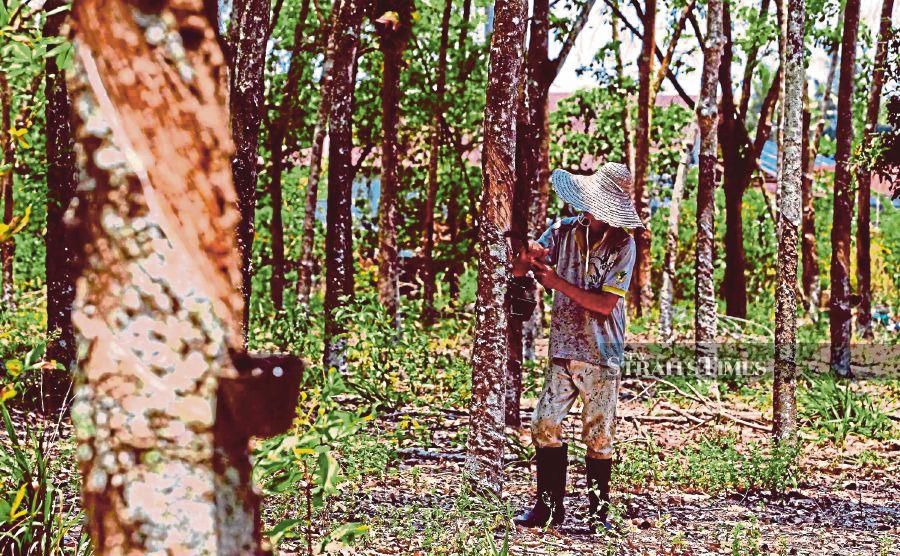HUSIN is a rubber tapper. He lives alone and makes his living tapping rubber in a smallholding owned by Hasan.
The arrangement is that, whatever rubber Husin taps is shared half-half with land owner Hasan, who because of old age is no longer able to tap rubber in his smallholding. There are many like Husin in the country. There are also many like Hasan.
They are all grouped together as rubber smallholders. The plot of rubber owned by Hasan measures less than an acre.
Most of the hundreds of thousands of rubber smallholders in the country own such a small space to earn a living. For decades now, ever since the big plantation boys abandoned rubber for oil palm, rubber in the country has been supplied by people like Husin and Hasan.
There have been periods when world rubber prices hit a high of more than RM5 per kg. But, more often than not, prices have hovered way below. Recently, it dropped below RM2.50 per kg. People like Husin and Hasan would be lucky to each earn at the most RM700 per month.
In these days of high food prices, not much can be bought with such meagre sum. Husin is luckier since he lives alone. But, it is different for Hasan. He has his ageing wife as well to care for. If not for the money he occassionally receives from his teacher son, he would be worse off.
This has been going on for decades now. Is there a chance for Hasan and Husin to escape the poverty scourge? This is most unlikely, looking at the trends in rubber prices all these years.
Can the government put in place a policy to at least provide citizens like Husin and Hasan a decent living?
While rubber smallholders face such misfortune, others making products from rubber do not suffer the same fate. In fact, a majority has become richer with the rubber supplied by the smallholders.
Tyre manufacturers are among those that have gained tremendously from the rubber that these smallholders toil to produce. It is a fact that tapping rubber is no easy task.
Husin has to wake up very early before sunrise to do his job. This is because science has shown that early morning is the time to get the best yield. This is when the turgor pressure is at its highest. This is also the time when mosquitoes are most active.
But, rubber smallholders have to soldier on just to earn a meagre sum to put food on the table.
Tyre-making consumes the biggest share of the world's rubber, accounting for around 70 per cent of the rubber sold worldwide. They will also be the biggest loser if rubber smallholders abandon tapping on account of poor returns.
A recent move by some pushing for sustainability certification may not be in the best interest of smallholders. The narratives that are being bandied around, mostly unsubstantiated, may lead to new import restrictions by rubber buyers which may deny rubber smallholders access to markets. This can be even more damaging for an already deprived group in the world rubber supply chain.
Instead of going down that road, it is more constructive for companies which have gained a fortune from rubber to support rubber smallholders by guaranteeing prices. This is more sensible and humane.
Only after smallholders are assured of a humane income can issue of sustainability be introduced. This way there is more guarantee of success.
A new initiative by the government to establish the National Sutainable Development Goal (SDG) Centre under the Economic Planning Unit is a welcome move. Since the number one goal of the 17 SDGs is to reduce world poverty, rubber smallholders are definitely among the relevant groups.
This injustice should be a priority for the SDG Centre. Unless their under compensation is addressed, the job of the SDG Centre can never be complete.
Their plea for justice must be answered.
The writer is a professor at the Tan Sri Omar Centre for STI Policy, UCSI University


